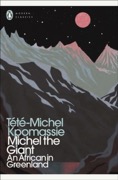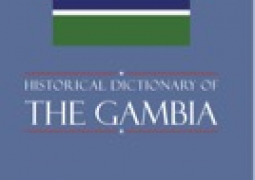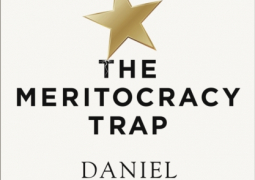
His discovery begins, as many do, in a book. As a teenager in 1950s Togo, one of Africa’s smallest countries, he finds The Eskimos from Greenland to Alaska, stocked by accident in an evangelical bookshop. The world of “the little men of the north” seems exotic to a boy brought up in a country where a python was wound around his naked body to cure a head injury. “In that land of ice, at least, there would be no snakes!” He returns to the bookshop to buy a map of the world.
Kpomassie is a young man of resourcefulness and energy. He feels “the call of the cold” in 1958, aged 17, and spends years working his way up the west coast of Africa, country by country, bouncing off obstacles like a pinball. In 1963, he makes it to Marseille; he feels “freer in France than on African soil”, because residents of former colonies are made welcome, but also because he is at last alone in a new world.
Two years later, he makes it to the “eternal ice” of his destination, a different planet 4,500 miles from home. He, too, is like an alien to the Greenlanders: “As soon as they saw me, all talking stopped.” But they like this curious stranger and one girl names him “Michel the Giant”: at 5ft 11in, he is 8in taller than most locals.
As Kpomassie throws himself into life in Greenland, he finds his height is not the only thing on a different scale. Greenland’s only prison has six cells. He goes fishing in the “international port” of Færingehavn, population 13. And he is maddened by their nonchalance, where a direct question nearly always produces the answer “Immaqa!” (“Perhaps!”)
But like many tourists, he has exoticised the country and is disappointed by ordinary life. “I wanted to live with seal hunters, ride in a sledge, sleep in an igloo!” So he travels to the far north, to experience the endless nights of winter and the nightless days of spring. Even difficulties are described with relish: Kpomassie reports only one incident of racial abuse, which he (perhaps vaingloriously) attributes to the man’s envy of his success with local w
Darkness, figurative and literal, becomes more common: we learn of “polar hysteria”, where a man leaves his home to beat up strangers, and of the symbiotic relationship between humans and dogs, not just as companions but as food. A poverty-stricken man slaughters his dogs one by one to feed his family; when permafrost is too hard for burial, huskies break coffins open and “gorge themselves on human flesh”. Once, Kpomassie is attacked by a ravenous dog and is saved from injury, aptly, by his thick dogskin trousers.
Dogs and men come together when seal blubber is on the menu: Kpomassie finds it “nauseating” – and seal intestines take “a lot of chewing” – but he soon comes to enjoy the food. It’s a measure of his increasing happiness in Greenland, though he leaves after 18 months to return home and try to explain things such as snow to his family. “Imagine that all the white birds in the sky are shedding their feathers…”
Michel the Giant is as much an ebullient snapshot of a vanished age as a travel book. In a new afterword, mostly an inessential account of the book’s success, Kpomassie makes clear that Greenland is his enduring love. He has gone back several times and now, he says, at the age of 81 he will return this year, for the final time, to live out his days in the home where his heart resides. It is never too late – immaqa!
Available at Timbooktoo tel: 4494345 / 5033448
Until Saturday 18th March Timbooktoo are celebrating World Book Day. All children who visit and buy a book can then choose a free book from a special table. Encourage your children to enjoy reading!





